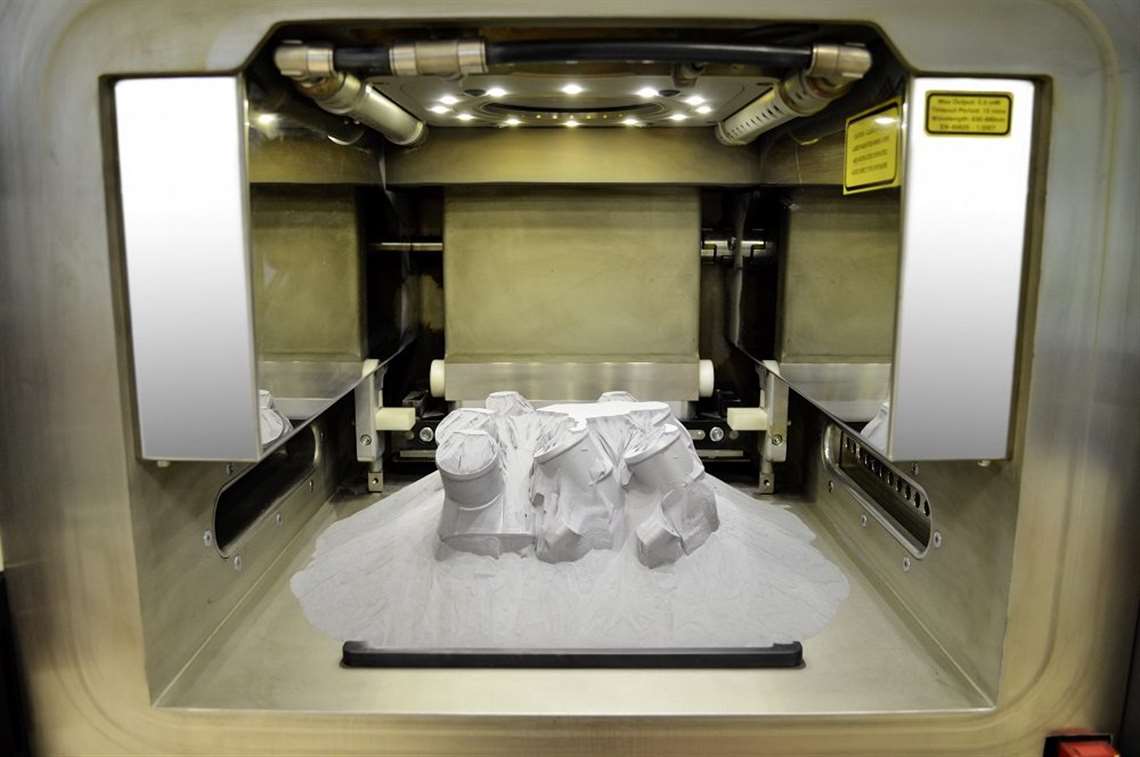M-B Goes 3D For Spare Parts
02 August 2017

Over the last several years, additive manufacturing – better known as 3D printing – has advanced to the point where a number of manufacturers began talking about a time when original equipment components and spare parts could be effectively “printed on demand.”
That concept recently took a big step toward reality, as Mercedes-Benz Trucks announced that it has produced its first printed spare part made of metal, a thermostat cover for truck and Unimog models from older model series. The cover has passed all stages of the company’s quality assurance process, the company said.
“With the introduction of 3D metal printing technology, Mercedes-Benz Trucks is reasserting its pioneering role among global commercial vehicle manufacturers,” said Andreas Deuschle, head of Marketing & Operations in Customer Services & Parts at Mercedes-Benz Trucks. “We ensure the same functionality, reliability, durability and cost-effectiveness with 3D metal parts as we do with conventionally produced parts.”
At the Customer Services & Parts division of Mercedes-Benz Trucks, automotive 3D printing began with printing plastic parts and the technique has now successfully established itself as an additional production method, one particularly suitable for the production of smaller batches, the company said.
3D printing of metallic components uses selective laser melting (SLM). In the case of the thermostat cover, for example, the powdered aluminum/silicon material (ALSi10Mg) is applied in individual layers and melted by an energy source, usually one or more lasers. When one layer is completed, a new layer of powder is applied automatically and the melting process is repeated. The process is repeated until a high-strength, three-dimensional aluminum component suitable for use in areas of high temperature has been produced. Thanks to the layered structure, the process also offers a level of geometrical freedom that cannot be matched by any other production method, Mercedes-Benz said.
Metal parts from the 3D printer offer very high strength and thermal resistance, making the process particularly suitable for the production of mechanically and thermally stressed components required in small numbers, Mercedes-Benz said. Metallic components can be produced “at the touch of a button” with any geometry and in any numbers.
3D replacement parts production began with rarely ordered aluminum parts, that the company said offer nearly 100% density and greater purity than conventional die-cast aluminum parts. Conceivable areas of use are peripheral engine parts made of metal, in-engine parts and also parts in cooling systems, transmissions, axles or chassis. Especially when they have complex structures, 3D-printed metal parts in small numbers can be produced cost-effectively as infrequently requested replacement parts, special parts and for small and classic model series, the company said.
“The availability of spare parts during a workshop visit is essential for our customers – no matter how old the truck is, or where it is located,” Deuschle said. “The particular added value of 3D printing technology is that it considerably increases speed and flexibility, especially when producing spare and special parts. This gives us completely new possibilities for offering our customers spare parts rapidly and at attractive prices, even long after series production has ceased.”
In the future, the company said 3D metal printing might allow decentralized local production directly in the worldwide Mercedes-Benz production locations. This would further improve parts availability, reduce warehousing and transportation issues, the company said.
POWER SOURCING GUIDE
The trusted reference and buyer’s guide for 83 years
The original “desktop search engine,” guiding nearly 10,000 users in more than 90 countries it is the primary reference for specifications and details on all the components that go into engine systems.
Visit Now
STAY CONNECTED




Receive the information you need when you need it through our world-leading magazines, newsletters and daily briefings.
CONNECT WITH THE TEAM









